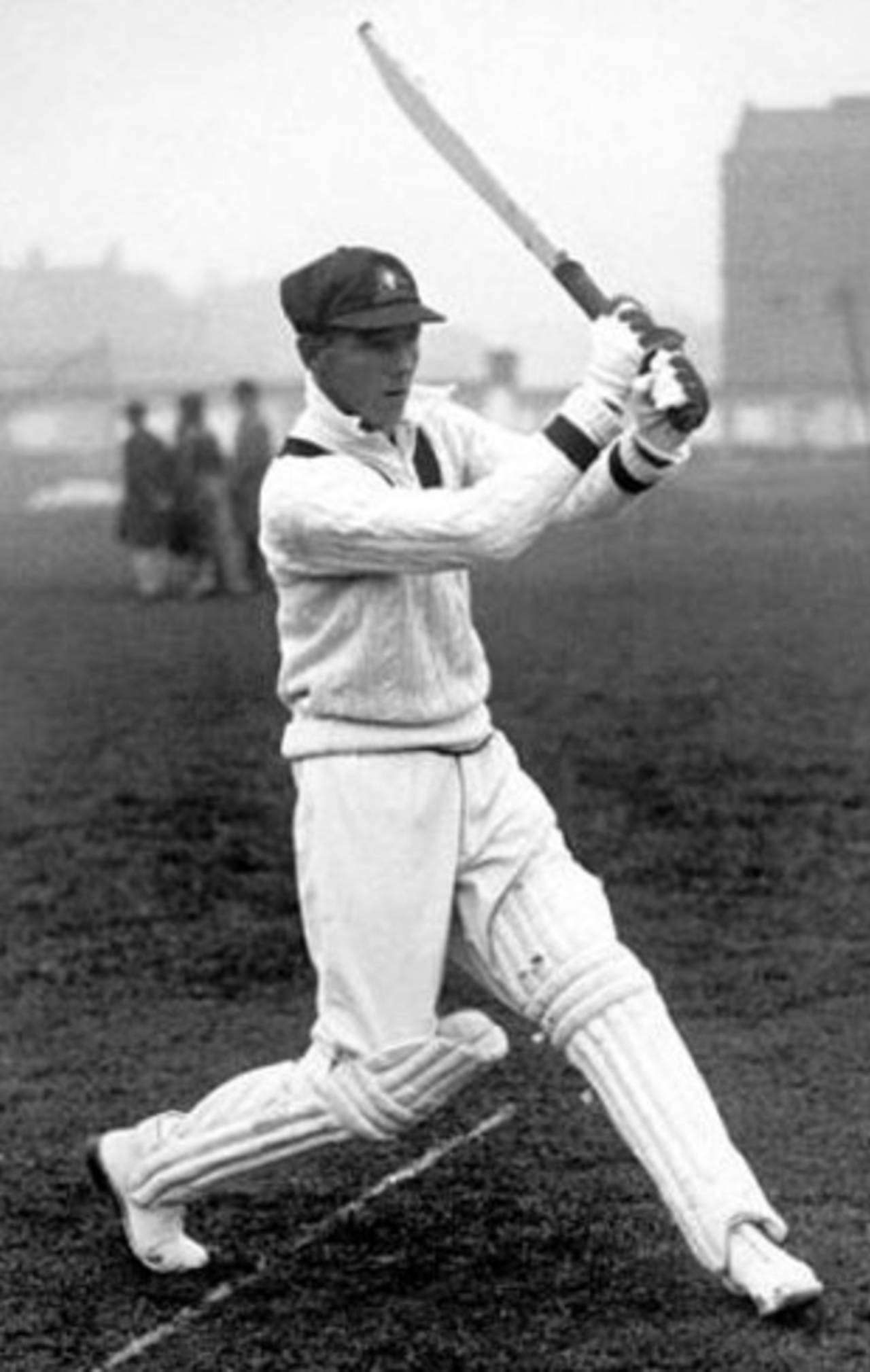Poet of the willow
Archie Jackson, who was born 100 years ago, was the Keats of cricket in more ways than one
Suresh Menon
06-Sep-2009

Archie Jackson: talent, suffering, delicacy, romance, and an untimely death • Getty Images
Comparisons with music seem to fit cricket better than comparisons with literature. Or perhaps we have been led to believe this is so by the writings of Neville Cardus, who thought nothing of grabbing his readers with: "And Spooner's cricket in spirit was kin with sweet music, and the singing of Elizabeth Schumann in Johann Strauss." Somehow it has always seemed more appropriate to compare a genius cricketer to Mozart, say, than to Shakespeare; even established literary figures when they occasionally wrote on the game tended to look outside their stream for analogies and comparisons. JB Priestley, for example, in his study of Garry Sobers did not see fit to bring Shakespeare into the equation as an allrounder.
So it was with some surprise that I read the subtitle of a biography of Archie Jackson. The surprise vanished when I read the author's name - David Frith, who, though certainly more literary than musical, is without the need to impress by dipping into the cauldron of cricket clichés. The subtitle? "The Keats of Cricket."
It is superbly apposite, conjuring up images that represent talent, suffering, delicacy, romance, tuberculosis and untimely death. Keats died at 25. His grave proclaims, "Here lies one whose name was writ in water." Jackson was 23 when he died, and Frith's attempt to ensure that his name is not merely writ in water is an admirable one.
Had Jackson lived, Don Bradman would never have been heard of, goes a popular myth. This theory doesn't hold water. Jackson lacked the ruthlessness of his great contemporary, and it was in the nature of his game that he would fail more often than Bradman.
There is a delightful story in Frith's book about Jackson's favourite bat. Jackson's friend Bill Hunt kept the much-used bat and once drew attention to a flaw along the inside edge - a split which if hit, says Frith, "would surely cause several inches to flake away". But Jackson didn't edge them down the leg side; his leg glances were perfect.
Jackson was the natural successor to Victor Trumper (who also died young, at 37) and belonged to a school of batting that rendered the scoreboard redundant. Or as Cardus put it, "The scoreboard was not [his] eternal looking-glass."
He began his Test career as a 19-year-old, with a century, bringing up the three figures by cover-driving Harold Larwood to the fence. In his foreword to the book, Larwood wrote: "That ball was delivered as fast as any I had ever bowled previously. That glorious stroke has lived in my memory for its ease and perfect timing." This was written nearly half a century after the match.
Had Jackson lived, Don Bradman would never have been heard of, goes a popular myth. This theory doesn't hold water. Jackson lacked the ruthlessness of his great contemporary, and it was in the nature of his game that he would fail more often than Bradman
Larwood had special reason to remember Jackson, for he was one of the few players to support him during the Bodyline series. From his hospital bed Jackson sent the bowler a telegram for his performance in the Brisbane Test. That was on February 15; the next day, his lungs beyond repair, Jackson passed away. On his gravestone is the legend: "He played the game."
As Jackson's health took a turn for the worse, he and Phyllis Thomas, his 21-year-old ballet-dancer girlfriend decided to get engaged after a three-year courtship. Again, there is here a touch of Keats and his engagement to Fanny Brawne and their doomed love. As he lay dying, "Phyl, her heart breaking, kept up her nightly and matinee performances at the Regent Theatre and came to the hospital with her stage make-up sustaining facial cheer," writes Frith with an economy that Jackson the batsman would have been proud of.
"When he died at 23," writes Frith, "cricket's transition from an aesthetic exercise to a purely mathematical strategy was under way... No spectator could ever have watched him late cut or advance to the drive without having to stifle the temptation to imitate."
Jackson was only 15 and playing grade cricket when Arthur Mailey first suggested he was the new Trumper. "Young Jackson is going to wreck the averages of some bowlers," he wrote. "Fortunately I am in the same team, so it won't be mine."
At 108 pages, Frith's is a slim volume. It wears its research lightly, and it paints a picture of one of the most remarkable men to have played the game. "The second coming of Trumper was short-lived," writes Frith, "but the course of cricket history was changed by a few degrees." In charting those degrees, the author pays tribute to both the poetry of a young man's batsmanship and the intelligence of the reader. This is rare.
Suresh Menon is a writer based in Bangalore